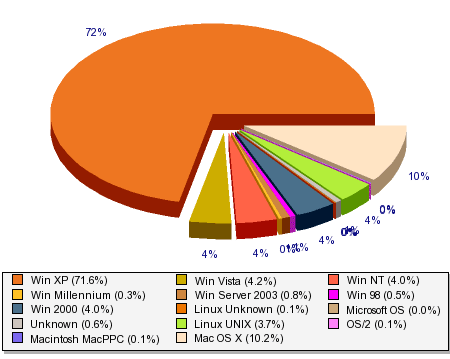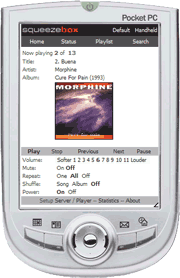Back in the stone age (say, about 20 years ago) we used to have this quaint concept for media we purchased called "fair use." I won't get into the legal definitions, but it meant in practice that if I had a book, I could read it at home, or I could take it into work and read it there. In college, I would read novels in the back of boring lectures, and soon hit on the tactic of xeroxing 20-30 pages of my book and putting the copies in a folder to disguise what I was doing. Fortunately, fair use let me do so without penalty. Sometimes a friend would read an article in a magazine he thought was cool, and he would xerox a copy of the article (a sample of the magazine, so to speak) and share it with me.
Increasingly, in the digital age, none of the behaviors are allowed anymore. For years I used to install my copy of turbo tax on both my home and office computers, and carry my tax file back and forth on a floppy to work on it. Then, a couple of years ago, Turbo Tax installed a form of rights management that required that I buy a second copy of the same software for my own personal use for my office. In effect, I could no longer carry my novel to work -- I had to buy a second copy if I wanted to read it at the office. The same situation has prevailed with digital music files - increasingly recording companies are taking the position that if you want a digital file on both your iPod and your home system, you need to buy two copies. And the sampling and sharing we used to do all the time with magazine and newspaper articles are not longer permitted for digital media.
Having firmly established the principle that multiple uses by the same individual of the same digital media should require multiple purchases, where do we go next? Well, I think that we will look back on the release of Windows Vista as the next great milestone in killing fair use. Microsoft may have left out nearly every product enhancement they originally promised for Vista, particularly the revamped file system, and tried to hide the fact with some pretty desktop eye candy, but they found plenty of time to add numerous DRM and copy protection schemes to the OS.
Because, having killed fair use for multiple copies, believe it or not, the media companies are attempting to kill fair use even for the original media by the original buyer! I know this sounds crazy, but in Windows Vista, media companies are given the opportunity to, in software, study your system, and if they feel that your system is not secure enough, they can downgrade the quality of the media you purchased or simply refuse to have it play. In other words, you may buy an HD DVD and find that the media refuses to play on your system, not because you tried to copy it, but because it feels like your system *might* be too open. The burden of proof is effect on the user to prove to the media companies that their system is piracy-proof before the media they paid for will play (emphasis added).
PVP [a new Vista DRM component] eliminates these security gaps, enabling a series of DRM measures that keep
a high-resolution content stream encrypted, and in theory completely protected,
from its source media all the way to the display used to watch it. If the system
detects a high-resolution output path on a user's PC (i.e., a system capable of
moving high-res content all the way to a user's display), it will check to make
sure that every component that touches a protected content stream adheres to the
specification. If it finds a noncompliant device, it can downgrade the content
stream to deliver a lower-quality picture -- or it can even refuse to play the
content at all, depending on the rights holder's preferences.
So you see the next step. First, they prevented fair use of copies. Now, they are going to prevent fair use of the original. Back to the book analogy, its as if the book will not open and let itself be read unless you can prove to the publisher that you are keeping the book in a locked room so no one else will ever read it. And it is Microsoft who has enabled this, by providing the the tools to do so in their operating system. Remember the fallout from Sony putting spyware, err copy protection, in their CD's -- turns out that that event was just a dress rehearsal for Windows Vista.
As Rosoff's statement implies, many of Vista's DRM technologies exist not
because Microsoft wanted them there; rather, they were developed at the behest
of movie studios, record labels and other high-powered intellectual property
owners.
"Microsoft was dealing here with a group of companies that simply don't trust
the hardware [industry]," Rosoff said. "They wanted more control and more
security than they had in the past" -- and if Microsoft failed to accommodate
them, "they were prepared to walk away from Vista" by withholding support for
next-generation DVD formats and other high-value content.
Microsoft's official position is that Vista's DRM capabilities serve users by
providing access to high-quality content that rights holders would otherwise
serve only at degraded quality levels, if they chose to serve them at all. "In
order to achieve that content flow, appropriate content-protection measures must
be in place that create incentives for content owners while providing consumers
the experiences they want and have grown to expect,"
Nope, no arrogance here.
Matt Rosoff, lead analyst at research firm Directions On Microsoft, asserts that
this process does not bode well for new content formats such as Blu-ray and
HD-DVD, neither of which are likely to survive their association with DRM
technology. "I could not be more skeptical about the viability of the DRM
included with Vista, from either a technical or a business standpoint," Rosoff
stated. "It's so consumer-unfriendly that I think it's bound to fail -- and when
it fails, it will sink whatever new formats content owners are trying to
impose."
More links on Vista DRM issues here
Update: OpenOffice 2.1 is out. We love OpenOffice at our company. We stopped buying MS Office a couple of years ago and have been thrilled with the decision. The version 1 release was weak but since version 2.0 it has been a very strong offering. It is nice to see Sun getting its Microsoft hatred out in a more productive manner than suing them all over the place.








